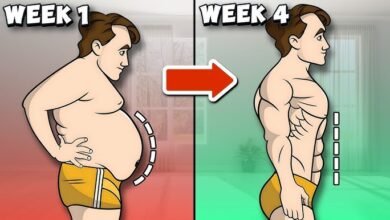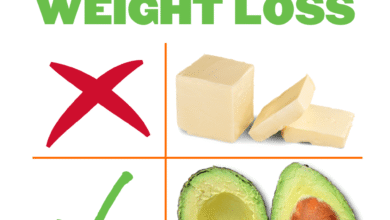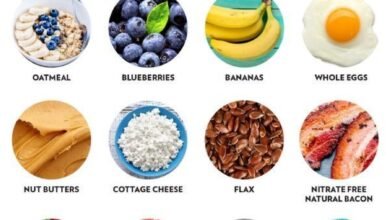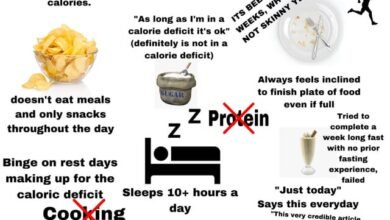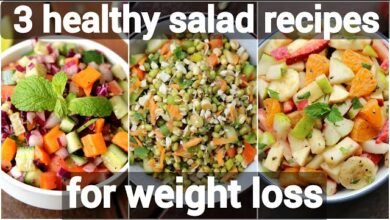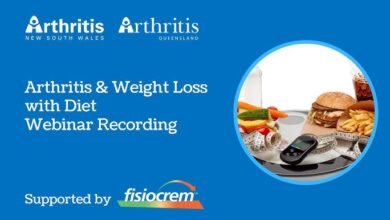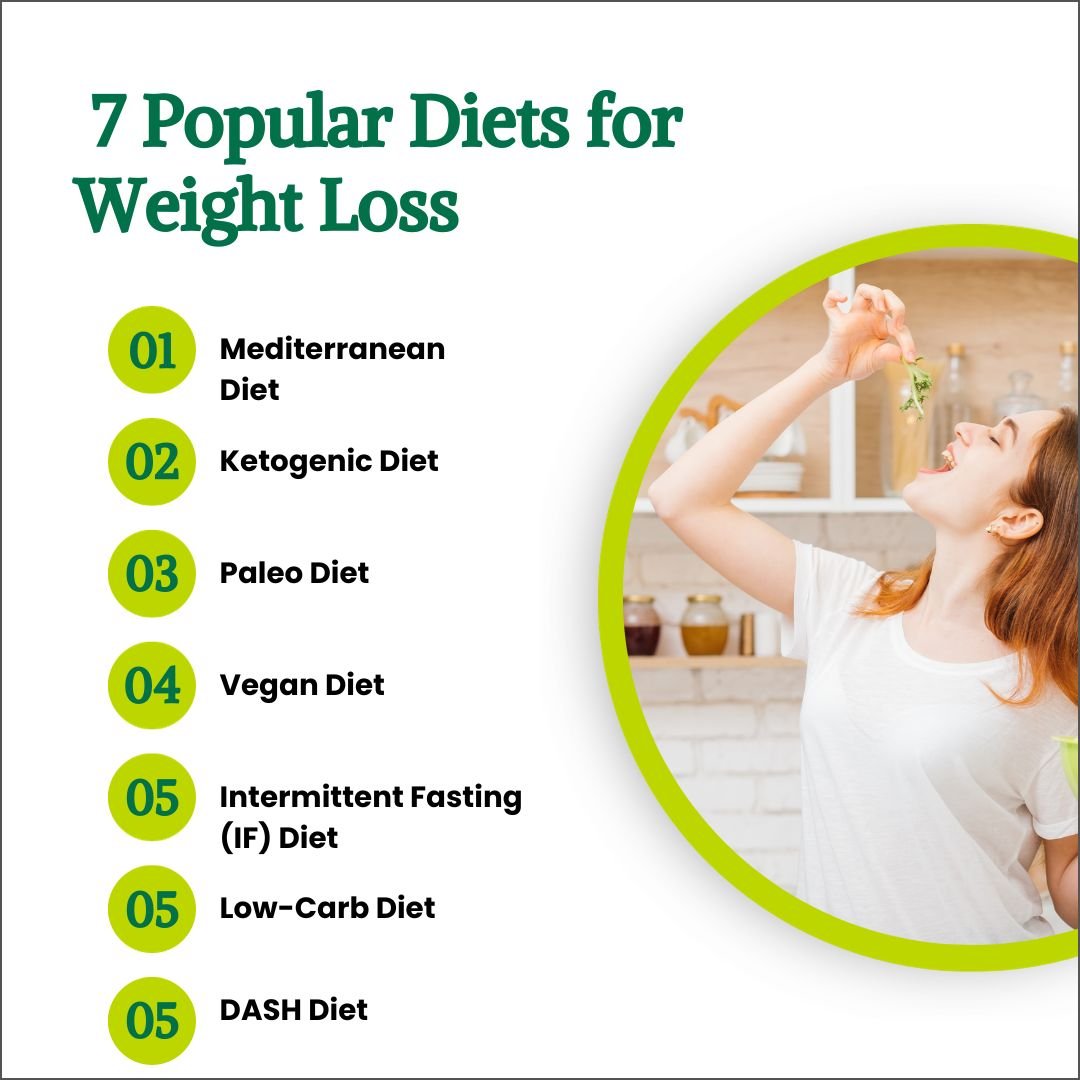
What is the Best Kind of Diet for Weight Loss: Expert Tips
Are you tired of sifting through countless diet plans, each promising to be the ultimate solution for weight loss? It can feel overwhelming, right?
You’re not alone in this struggle. The quest for the perfect diet that fits your lifestyle and actually delivers results can be daunting. But what if you could cut through the noise and discover the best kind of diet for weight loss, tailored just for you?
Imagine finally finding a plan that not only helps you shed those stubborn pounds but also aligns with your daily routine and tastes. We’ll explore the top diets, unravel the science behind them, and help you determine which one might just be your perfect match. Stay with us, and let’s uncover the secrets to effective weight loss together. Your journey to a healthier, happier you starts now.
Low-carb Diets
Low-carb diets focus on reducing carbohydrate intake while increasing protein and healthy fats. They can help with weight loss by lowering insulin levels and boosting metabolism. Many people find them effective for achieving their weight loss goals.
Low-carb diets are popular for weight loss. They focus on reducing carbohydrate intake. This encourages the body to burn fat for energy. Many people find low-carb eating effective. It’s simple and easy to follow.Benefits Of Low-carb Eating
Low-carb diets can help reduce appetite. You may feel fuller and eat less. They can lead to quick weight loss. Many people see results in weeks. Low-carb eating may improve blood sugar levels. This can be helpful for those with diabetes. It may also lower triglycerides and increase good cholesterol.Foods To Include And Avoid
Include lean meats, fish, and eggs. Non-starchy vegetables are great choices. Think broccoli, spinach, and peppers. Healthy fats like olive oil and avocado are beneficial. Avoid bread, pasta, and sugary snacks. Limit fruits high in sugar like bananas and grapes. Stay away from processed foods with hidden carbs.Potential Drawbacks
Some people may experience fatigue. The body adjusts to lower carbs. Constipation can occur due to reduced fiber intake. It’s important to drink plenty of water. Nutrient deficiencies may arise. Ensure you’re getting vitamins and minerals. Social events can be challenging. Many gatherings feature high-carb foods.
Credit: www.health.harvard.edu
Mediterranean Diet
The Mediterranean Diet has gained popularity for its balanced approach to eating. Originating from countries like Greece and Italy, this diet focuses on fresh, whole foods. It’s not just about weight loss; it promotes overall health and wellbeing.
Core Principles
The Mediterranean Diet emphasizes fruits, vegetables, and whole grains. Healthy fats, like olive oil, are central to this diet. Lean proteins such as fish and poultry are preferred. It limits red meat and processed foods. Herbs and spices replace salt for flavor.
Health Benefits
This diet supports heart health and reduces the risk of chronic diseases. It lowers bad cholesterol levels and helps control blood pressure. Antioxidants in fruits and vegetables improve brain function. The diet can enhance mood and energy levels.
Weight Loss Potential
Many find success with weight loss using the Mediterranean Diet. Its focus on whole foods helps reduce calorie intake. Eating fiber-rich foods promotes fullness and reduces overeating. Regular meals prevent unhealthy snacking.
Plant-based Diets
Plant-based diets are gaining popularity for their health benefits. They focus on consuming foods primarily from plants. This includes vegetables, fruits, nuts, seeds, oils, and legumes. Many people choose plant-based diets to improve health and lose weight.
Types Of Plant-based Diets
There are several types of plant-based diets. Vegetarian diets exclude meat but include dairy and eggs. Vegans avoid all animal products, including dairy and eggs. Flexitarians mostly eat plant foods but occasionally consume meat. Each type offers a unique approach to eating.
Nutritional Considerations
Plant-based diets provide vital nutrients. They are rich in fiber, vitamins, and minerals. Protein sources include beans, lentils, and tofu. B12 and iron are essential for those avoiding meat. Supplements or fortified foods can help meet these needs.
Weight Management Benefits
Plant-based diets can aid weight loss. They are lower in calories and high in fiber. This makes you feel full longer and reduces overeating. Studies show plant-based eaters often have lower body weights. Choosing plant foods can support healthy weight management.
Intermittent Fasting
Intermittent fasting is a popular diet choice for weight loss. This eating pattern involves cycling between periods of eating and fasting. Many find it effective in managing calorie intake and improving metabolism.
Intermittent fasting has gained popularity as a flexible and effective approach for weight loss. Instead of focusing on what you eat, it emphasizes when you eat. Many people find it easier to manage than traditional diets, as it allows for personal customization to fit various lifestyles.Popular Fasting Methods
There are several methods of intermittent fasting, making it adaptable to different preferences. The 16/8 method involves fasting for 16 hours and eating during an 8-hour window. Another common approach, the 5:2 method, lets you eat normally for five days while restricting calories to around 500-600 on two non-consecutive days.Impact On Metabolism
Intermittent fasting can have a significant impact on your metabolism. By limiting eating times, it helps your body burn fat more efficiently by utilizing stored energy. Some studies suggest it may also improve metabolic health by reducing insulin resistance and promoting better blood sugar control.Expert Opinions
Experts are divided on intermittent fasting, but many acknowledge its potential benefits for weight loss. Dr. Jason Fung, a leading expert on fasting, advocates for its ability to reduce insulin levels, promoting fat loss. However, nutritionists caution that while fasting can be effective, it’s essential to ensure you’re still getting the nutrients your body needs during eating windows. How do you feel about trying intermittent fasting? Could managing when you eat, rather than what you eat, simplify your weight loss journey?Ketogenic Diet
Have you ever wondered why some diets work better than others for weight loss? The ketogenic diet, often called the keto diet, has gained popularity due to its unique approach to shedding pounds. It’s not just about cutting calories; it’s about changing the way your body uses energy. Let’s dive into how the ketogenic diet works and whether it might be the right choice for you.
How It Works
The ketogenic diet is based on drastically reducing your carbohydrate intake and replacing it with fats. This shift in macronutrients pushes your body into a state called ketosis. In ketosis, your liver converts fat into ketones, which become your body’s primary energy source instead of glucose.
Imagine your body as a hybrid car switching from gasoline to electric power. This change helps burn stored fat more efficiently. You might notice increased energy levels as your body becomes a fat-burning machine.
To start a keto diet, you reduce carbs to about 20-50 grams per day, focusing on foods like meat, fish, eggs, nuts, and healthy oils. You’ll need to monitor your carb intake closely to maintain ketosis.
Pros And Cons
Pros:
- Fast weight loss: Many people see results within weeks.
- Reduced hunger: High-fat foods keep you feeling full longer.
- Improved mental clarity: Some report better focus and concentration.
Cons:
- Initial flu-like symptoms: Known as “keto flu,” you might feel sluggish at first.
- Limited food choices: Say goodbye to bread, pasta, and many fruits.
- Social challenges: Eating out can become tricky, limiting options.
Consider if these pros outweigh the cons for your lifestyle. Are you ready to give up your favorite pasta dish for the sake of weight loss?
Sustainability For Long-term Weight Loss
While the keto diet can offer quick results, is it sustainable for the long haul? Many find the initial weight loss motivating, but maintaining this diet can be tough. Some revert to old eating habits, causing weight regain.
One way to ensure sustainability is by gradually reintroducing healthy carbs while maintaining a balance. This approach can prevent burnout and promote steady weight management.
Ask yourself, can you see yourself sticking to this eating style? If not, it might be worth exploring other diets that offer more flexibility. Remember, the best diet for weight loss is one you can maintain over time.
Paleo Diet
The Paleo Diet has gained popularity among those seeking weight loss. It mimics the eating habits of our ancestors. The focus is on consuming whole foods. It excludes processed foods, grains, and dairy. Supporters believe it aligns with human evolution.
Dietary Guidelines
The Paleo Diet emphasizes natural and unprocessed foods. Lean meats, fish, fruits, and vegetables are staples. Nuts and seeds also feature prominently. Dairy, grains, and legumes are off-limits. The aim is to eat like early humans.
This diet encourages high protein intake. It restricts carbohydrates from grains. Healthy fats from nuts and fish are encouraged. Sugar and salt intake should be minimal. Meal preparation often involves simple cooking methods.
Impact On Weight
The Paleo Diet can lead to weight loss. High protein intake helps reduce hunger. Low-carb focus aids in fat burning. Many report feeling fuller for longer. This can reduce overall calorie intake. The diet’s emphasis on whole foods also helps.
Some studies show positive results. People often experience better metabolic health. Reduction in belly fat is common. But individual results may vary. Consistent adherence is crucial for success.
Expert Critiques
Experts have mixed opinions on the Paleo Diet. Some praise its focus on whole foods. They agree it can improve metabolic health. Others criticize its restrictive nature. Excluding grains and dairy concerns some nutritionists.
Lack of dietary fiber is a common worry. Critics also point to sustainability issues. Long-term adherence can be challenging. The diet may not suit everyone. It’s important to consult a healthcare professional first.
Choosing The Right Diet
Finding the best diet for weight loss involves balancing nutrition, calories, and personal preferences. Low-carb diets often reduce appetite, aiding weight loss. A balanced approach ensures sustainable and healthy results.
Choosing the right diet is crucial for effective weight loss. Everyone’s body responds differently to various diet plans. Finding the perfect fit requires considering several factors. Personal preferences, health needs, and lifestyle compatibility can guide your choice. Let’s explore these factors in detail.Personal Preferences
Your taste buds play a significant role in diet success. Enjoying your meals increases the likelihood of sticking with your diet. Do you prefer plant-based meals, or do you love protein-rich foods? Identifying what you like helps maintain your diet long-term. Also, consider cultural and traditional foods you enjoy.Health Considerations
Health status impacts diet choices. Some individuals need to manage specific health conditions. Diabetes, heart disease, or allergies can influence dietary needs. Consulting with a healthcare professional is essential. They can recommend diets that support both weight loss and health goals.Lifestyle Compatibility
Busy schedules demand convenient diet plans. Time-consuming diets may not fit into hectic lifestyles. Consider how much time you can dedicate to meal prep. Does your job require frequent travel? Choose a diet that accommodates your daily routine. Flexibility and convenience make it easier to follow a diet consistently.
Credit: www.pinterest.com
Expert Tips For Success
Discover the best diet for weight loss by focusing on balanced meals. Include lean proteins, whole grains, and vegetables. Drinking plenty of water and practicing portion control also help maintain a healthy weight.
Embarking on a weight loss journey can be challenging, but with expert tips, you can set yourself up for success. Achieving your weight loss goals isn’t just about finding the right diet plan; it’s about implementing strategies that fit into your lifestyle. Here are some expert tips that can help you stay on track and reach your desired weight.Setting Realistic Goals
Start by setting goals that are achievable. Instead of aiming to lose 20 pounds in a month, focus on losing 1 to 2 pounds per week. This approach not only makes your goal more attainable but also healthier for your body. Think about why you want to lose weight. Is it to feel more energetic, or to improve your health? Keeping a clear reason in mind can motivate you to stay committed. Write down your goals and review them regularly. Seeing your goals in writing makes them feel tangible and keeps you accountable.Monitoring Progress
Keep track of your progress to see how far you’ve come. Use a journal, an app, or even a simple spreadsheet to record your weight and any changes in your measurements. Consider taking photos along the way. Sometimes, the numbers on the scale don’t reflect the changes in your body, but photos can show your progress. Celebrate small victories. Did you stick to your meal plan all week? Did you hit your exercise target? Acknowledge these achievements to stay motivated.Adapting To Challenges
Expect challenges and plan how to deal with them. Life is unpredictable, and there will be days when things don’t go as planned. Instead of feeling defeated, think about how you can adapt. If you miss a workout, find a way to be active later in the day. If you overindulge at a meal, make healthier choices at the next one. Flexibility is key to long-term success. Ask yourself, “What can I learn from this?” Each challenge is an opportunity to adjust your approach and improve. Embrace these moments to grow and strengthen your resolve. By focusing on these expert tips, you can make your weight loss journey more effective and enjoyable. Remember, it’s not just about the destination; it’s about creating sustainable habits that lead to a healthier lifestyle.
Credit: www.singlecare.com
Frequently Asked Questions
What Diet Is The Most Effective For Weight Loss?
The most effective diet for weight loss is a balanced approach. Focus on whole foods, lean proteins, and healthy fats. Reduce processed foods and sugars. Portion control and regular physical activity enhance results. Consult a nutritionist for personalized plans. Consistency and sustainability are key to long-term success.
How To Lose 20 Pounds In A Month?
To lose 20 pounds in a month, focus on a balanced diet with fewer calories. Include regular exercise like cardio and strength training. Stay hydrated and get enough sleep. Avoid processed foods and sugar. Consult a healthcare professional before starting any new diet or exercise program.
Which Diet Plan Is Best For Weight Loss?
The best diet for weight loss varies per individual. Consider balanced diets like the Mediterranean or DASH. Prioritize whole foods, lean proteins, fruits, and vegetables. Limit processed foods and sugars. Consult a healthcare provider for personalized advice.
Which Type Of Food Is Best For Weight Loss?
Opt for whole foods like fruits, vegetables, lean proteins, and whole grains. These are low in calories and high in nutrients. Consuming fiber-rich foods aids digestion and keeps you full longer. Healthy fats from sources like avocados and nuts are also beneficial.
Drink plenty of water to support weight loss.
Conclusion
Choosing the best diet for weight loss is personal. It depends on individual needs and preferences. Listen to your body. Some prefer low-carb diets. Others feel better on plant-based plans. Finding balance is key. Include fruits, vegetables, and lean proteins.
Hydration matters too. Drink plenty of water. Regular exercise complements dietary changes. Stay active. Consult with a health professional. They can offer tailored advice. Remember, patience is essential. Weight loss is a journey, not a race. Small steps lead to big changes.
Make choices that support long-term health. Your ideal diet awaits. Make thoughtful decisions and stay committed.
